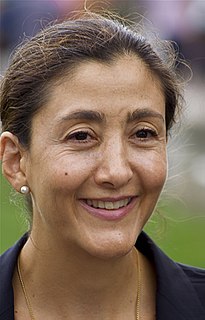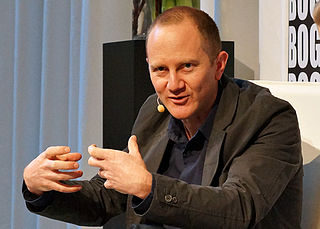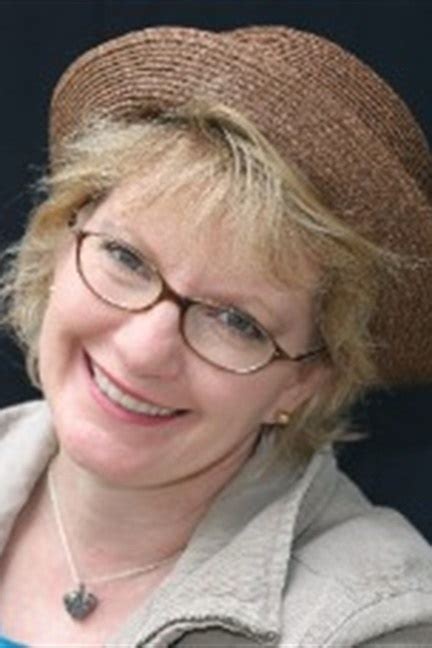A Quote by Ingrid Betancourt
There was humiliations, cruelty, abuse, violence. And they were all the time trying to put to fight the prisoners one against the other, filling us with wrong information about the others or giving privileges to some so that the others would feel jealous and would react. And I could see how they were manipulating us.
Related Quotes
It is true that some have greater power of resistance than others, but everyone has the power to close his heart against doubt, against darkness, against unbelief, against anger, against hatred, against jealousy, against malice, against envy. God has given this power unto all of us, and we can gain still greater power by calling upon Him for that which we lack. If it were not so, how could we be condemned for giving way to wrong influences?
We have a stewardship responsibility to keep ourselves healthy physically and emotionally. If we don't, we cannot carry out our obligations to God, to family, to our employer, or to others. With this in mind, we put limits on the extent to which we allow others to abuse us. Doing right will mean abuse part of the time; that goes with the turf. But inviting abuse or failing to deal with it is wrong.
Imagine that someone said or did something cruel to you, but that you did not react in any way whatsoever – you did not become upset, resentful or even ruffled. You simply observed that this person was saying or doing something cruel, as though you were calmly observing the scene in a movie. You simply would not be stressed by what would appear to others to be a highly stressful encounter. Stress and cruelty affect us as profoundly as they do only because we react to them resentfully.
I think my ideal man would speak many languages. He would speak Ibo and Yoruba and English and French and all of the others. He could speak with any person, even the soldiers, and if there was violence in their heart he could change it. He would not have to fight, do you see? Maybe he would not be very handsome, but he would be beautiful when he spoke. He would be very kind, even if you burned his food because you were laughing and talking with your girlfriends instead of watching the cooking. He would just say, 'Ah, never mind'.
But even if we were to disappear, people would still be divided into people and Others. No matter how those Others were different.People can't get by without Others. Put two people on an uninhabited island, and you'll have a human being and an Other. And the difference is that an Other is always tormented by his differentness. It's easier for people. They know they're people, and that's what they ought to be. And they all have no choice but to be that way. All of them, forever.
I felt tired for the first time, and I thought of us lying down on some grassy patch of SeaWorld together, me on my back and she on her side with her arm draped against me, her head on my shoulder, facing me. Not doing anything--just lying there together beneath the sky, the night here so well lit that it drowns out the stars. And maybe I could feel her breathe against my neck, and maybe we could just stay there until morning and then the people would walk past us as they came into the park, and they would see us and think that we were tourists, too, and we could just disappear into them.
Being concerned about other people is especially relevant in today's world. If we consider the complex inter-connected ness of our modern lives, how we depend on others and others depend on us, our outlook will change. We’ll begin to see 'others' not as somehow distant from us, but as people we are in touch with, people close to us; we will no longer feel indifferent to them.
We have nightmares because our brain is running simulations to put us in jeopardy to see what we'll do or to acclimatize us to that idea that something bad could happen. It's just how human beings are wired because the entire time we were evolving we had to jump quick or the leopard would get us or whatever it was. It's Darwinian.
How would you feel if you had no fear? Feel like that. How would you behave toward other people if you realized their powerlessness to hurt you? Behave like that. How would your react to so-called misfortune if you saw its inability to bother you? React like that. How would you think toward yourself if you knew you were really all right? Think like that.
Charisma seems to be more about the intoxicating quality that you have on other people, as opposed to presence, which is more about the self in relation to others, and how you feel you represented yourself in a situation, and how you were able to engage. So it's less about how others see you and more about how you see yourself.
Often a man wishes to be alone and a girl wishes to be alone too and if they love each other they are jealous of that in each other, but I can truly say we never felt that. We could feel alone when we were together, alone against the others. But we were never lonely and never afraid when we were together.
In the US. Infantry Manual published during World War II, the soldier was told what to do if a live grenade fell into the trench where he and others were sitting: to wrap himself around the grenade so as to at least save the others. (If no one "volunteered," all would be killed, and there were only a few seconds to decide who would be the hero.)
The newspaper stories were like dreams to us, bad dreams dreamt by others. How awful, we would say, and they were, but they were awful without being believable. They were too melodramatic, they had a dimension that was not the dimension of our lives. We were the people who were not in the papers. We lived in the blank white spaces at the edges of print. It gave us more freedom. We lived in the gaps between the stories.


































